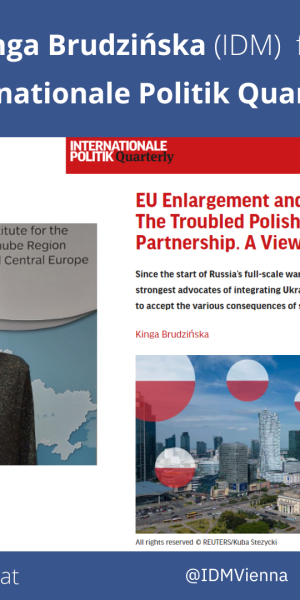You can read or download this PPS by clicking on the picture above.
Not only a Seat but also a Say at the Political Table:
Enhancing Women’s Leadership in the Polish
and Slovak Parliaments
Malwina Talik & Vladislava Gubalova
Poland and Slovakia are holding parliamentary elections in the autumn of 2023. This presents an opportunity to assess the state of gender parity within their parliaments, country-specific barriers and their commitment to inclusive electoral lists. In both parliaments, women remain underrepresented due to a combination of socio-cultural factors. This means lost potential, as gender-balanced representation and inclusion would lead to more vigorous policymaking and informed debates, allowing different perspectives to be heard. This, in turn, translates into better opportunities and protection for citizens.
PS: Recommendations
- Promote female participation in politics across all age groups through grassroots involvement, campaigns, mentoring programmes, and the provision of role models.
- Enhance women’s visibility within the party through inclusive electoral lists and support their progression into leadership positions. Foster a culture of active support for female colleagues and zero tolerance for sexism or degrading language. Implement ongoing internal processes dedicated to increasing female representation in the party and on election lists.
- Increase female politicians’ visibility in public space so they can show their expertise and act as role models (nominate them for media interviews, panel discussions and conferences on all issues; offer them coaching or workshops on media competence and debate).
- Invest in the campaigns of female candidates and MPs. Female candidates struggle to gather funds, with donors more often being men who support other men. Set aside funding specifically for female candidates. Showcase their expertise and added value for the party to donors.
- Translate good practices from other sectors and regions, such as northern European countries and Spain, known for gender parity in the public sphere. The combination of practices and existing regulations should be carefully studied in governmental institutions (aided by current research) and appropriately applied.


